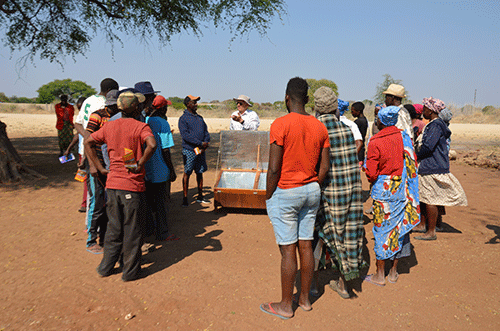The Renewable Energy Industry Association of Namibian (REIAoN) has launched the Renewable Energy Rural Awareness campaign, financed by the GIZ Green People’s Energy project.
The rural awareness campaign is expected to help improve access to information and strengthen advocacy for rural renewable energy products and service providers through the creation of awareness and training.
REIAoN, being the relevant industry representative, is ideally positioned to leverage its position to support and maximise the impacts of the off-grid renewable energy sector.
The awareness campaign will focus on the Kavango East and West, Zambezi, Ohangwena, Kunene, Hardap and !Karas regions.
REIAoN project manager Anna Hamukwaya said the campaign will focus on renewable energy technologies and services in rural areas while also creating awareness on matters relating to the adoption and use of renewable energy and energy-efficient technologies.
“We also aim to establish a network of professional relationships with SMEs within the renewable energy industry that are based in different regions, as well as international bodies; to advocate for renewable energy-related projects in communities through local authorities and to teach the communities about RE, how it can be incorporated in their daily lives for their small businesses, farming or agricultural purposes or day to day household use,” said Hamukwaya.
REIAoN aims to sign up at least 50 new members by the end of the campaign.
“Regional authorities in different regions have identified communities within their jurisdiction that we will be visiting, for example, Shikenge in Kavango East, and Mpungu in Kavango West, to name a few. The aim is to visit at least two communities within each region over a period of one month,” said Hamukwaya.
Alastair Aspara, REIAoN vice chairperson, said wind and solar do not require water, which is beneficial to rural areas, especially where farms are concerned.
He said households can use renewable energy for power, cooking, charging batteries and heating homes.
There are also major economic benefits to the use of renewable energy in rural communities, especially in improving methods of subsistence and small-scale commercial farming.
The awareness campaign will share information through platforms, such as radio clips in various local languages and the distribution of flyers, catering for over 12 rural communities and reaching over 2000 people.
“Additionally, we will be doing rural stakeholder engagements and advocacy meetings with several local authorities and local agencies (excluding municipalities and town councils). Furthermore, REIAoN hopes to establish at least one professional partnership with a renewable energy association occupying a similar position in a foreign or global market through this campaign,” said Aspara.
REIAoN’s objectives include the promotion of matters concerning renewable energy, with a focus on renewable technologies, creating awareness on matters relating to the adoption and use of technologies using renewable energies and energy-efficient technologies and practices, as well as to establish a network of professional relationships with national and international bodies that share similar objectives.


